
Is the Term ‘IT Department’ on Its Way Out?
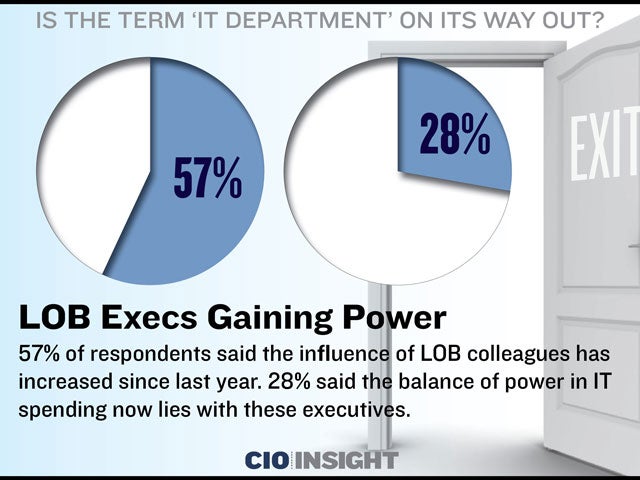 LOB Execs Gaining Power
LOB Execs Gaining Power
57% of respondents said the influence of LOB colleagues has increased since last year. 28% said the balance of power in IT spending now lies with these executives.
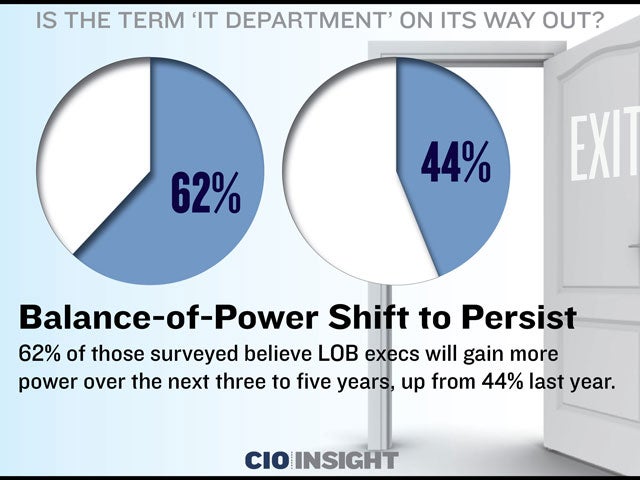 Balance-of-Power Shift to Persist
Balance-of-Power Shift to Persist
62% of those surveyed believe LOB execs will gain more power over the next three to five years, up from 44% last year.
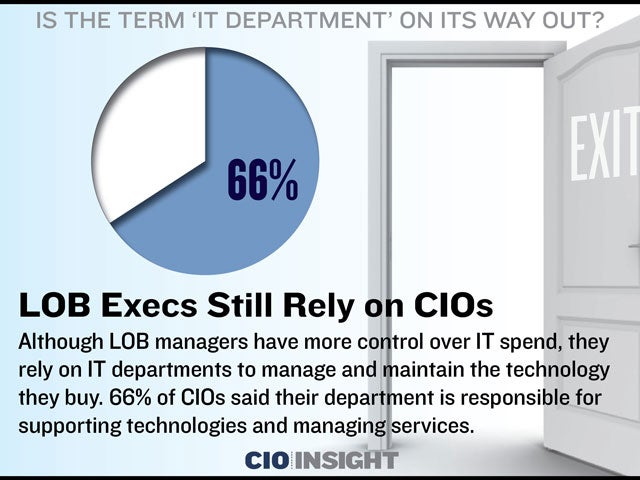 LOB Execs Still Rely on CIOs
LOB Execs Still Rely on CIOs
Although LOB managers have more control over IT spend, they rely on IT departments to manage and maintain the technology they buy. 66% of CIOs said their department is responsible for supporting technologies and managing services.
 Resourcing Challenges Expected
Resourcing Challenges Expected
If this shift in balance of power continues, skills requirements will become harder to predict as the range of IT products and services and support for them grows.
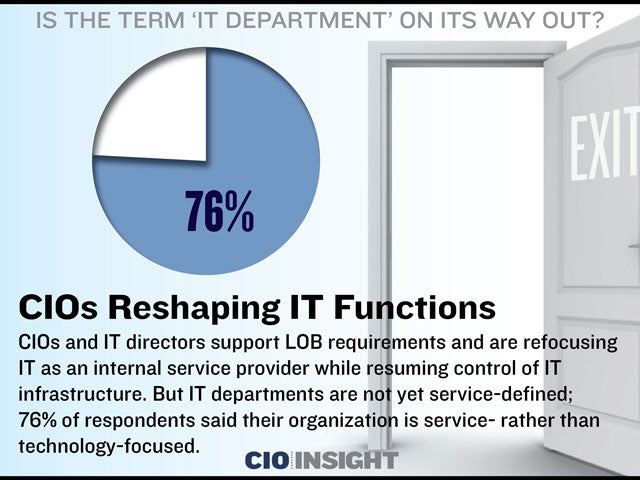 CIOs Reshaping IT Functions
CIOs Reshaping IT Functions
CIOs and IT directors support LOB requirements and are refocusing IT as an internal service provider while resuming control of IT infrastructure. But IT departments are not yet service-defined; 76% of respondents said their organization is service- rather than technology-focused.
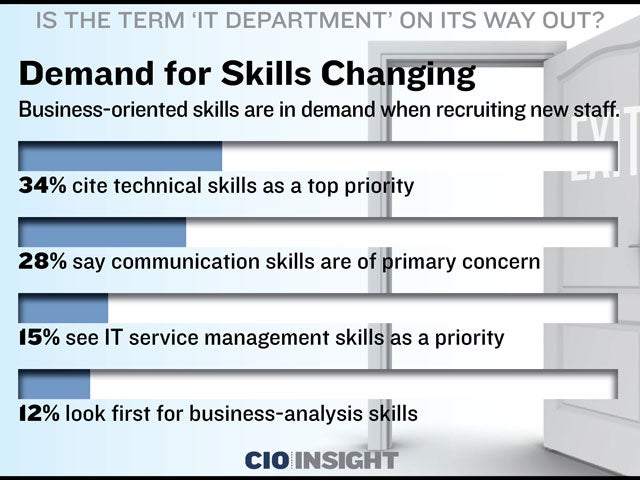 Demand for Skills Changing
Demand for Skills Changing
Business-oriented skills are in demand when recruiting new staff. 34% cite technical skills as a top priority, 28% say communication skills are of primary concern, 15% see IT service management skills as a priority, 12% look first for business-analysis skills
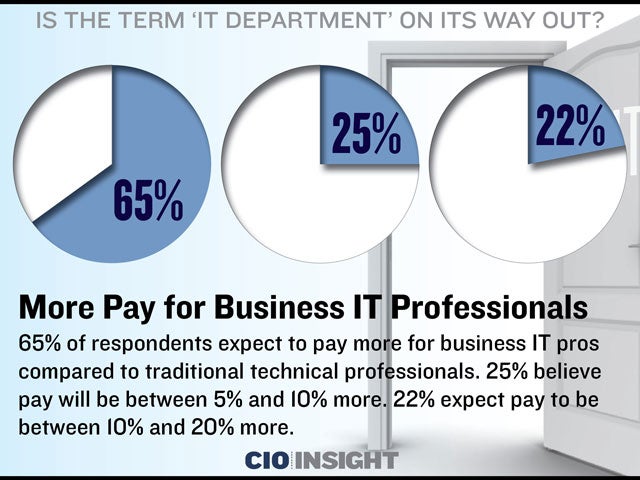 More Pay for Business IT Professionals
More Pay for Business IT Professionals
65% of respondents expect to pay more for business IT pros compared to traditional technical professionals. 25% believe pay will be between 5% and 10% more. 22% expect pay to be between 10% and 20% more.
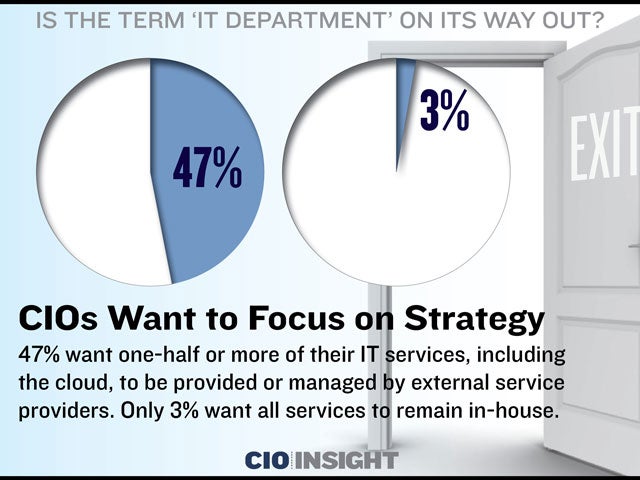 CIOs Want to Focus on Strategy
CIOs Want to Focus on Strategy
47% want one-half or more of their IT services, including the cloud, to be provided or managed by external service providers. Only 3% want all services to remain in-house.
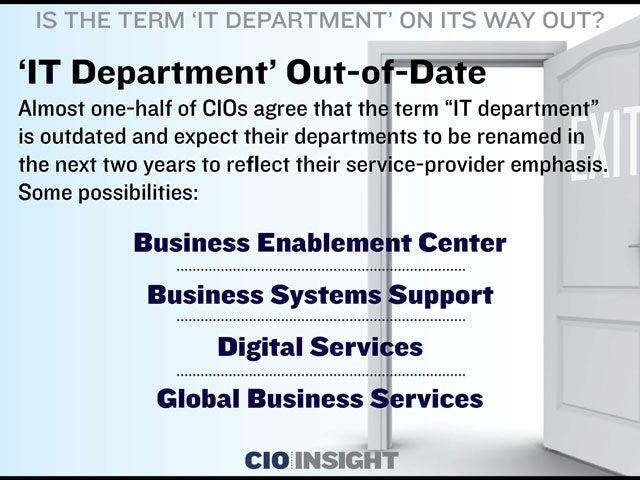 ‘IT Department’ Out-of-Date
‘IT Department’ Out-of-Date
Almost one-half of CIOs agree that the term “IT department” is outdated and expect their departments to be renamed in the next two years to reflect their service-provider emphasis. Some possibilities: Business Enablement Center, Business Systems Support, Digital Services, Global Business Services
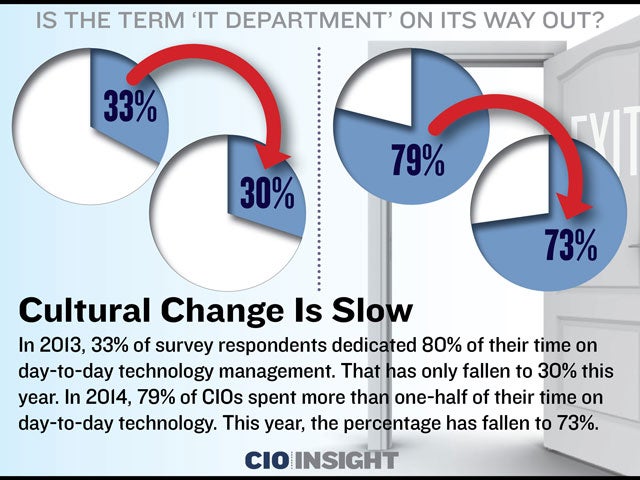 Cultural Change Is Slow
Cultural Change Is Slow
In 2013, 33% of survey respondents dedicated 80% of their time on day-to-day technology management. That has only fallen to 30% this year. In 2014, 79% of CIOs spent more than one-half of their time on day-to-day technology. This year, the percentage has fallen to 73%.